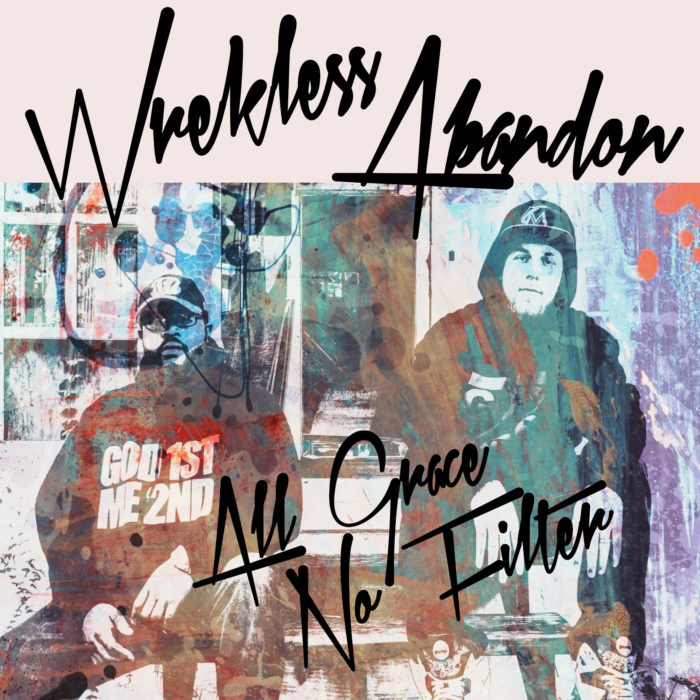Edgy, amusing, and personal are some of the words that could be used to describe Bejoy Philip. The artist previously known as “Brother Wize” from the Stellar Award-nominated group Frontlynaz gave me the chance to gain some insight into his life in Christian Hip Hop and his other activities.
Edward: On the song “Pump up the Bass” you famously said that you are “not triple H” [meaning “Holy Hip Hop”, not the professional wrestler] You later did a YouTube video explaining that line. Is that because you had received negative feedback those lyrics?
Wize: I did get flack. I saw the divide. Why do I have to put myself in the box? I’m not a lyrical theologian. I felt I was making music out of a Christian worldview. The phrase “Holy Hip Hop” sounds like a branding term.
There was a divide in how we are received. The Holy Hip Hop genre never really accepted us (Frontlynaz). It was always this unsaid thing in which people liked our music but didn’t think we were “down with the program.”
{youtube}OouNBnJN6VU{/youtube}
Edward: What was the thought process behind the Thunderground mix tapes?
Wize: I think when we put out the first Thunderground mixtape it was groundbreaking for the genre. We made a full album full of secular beats. We flipped them and made them our own songs. This wasn’t a shoddy production. By the time the Stimulus Package EP was released everyone had done some form of mixtape. It didn’t have such a dividing effect. We had a lot of artists disagree with us doing that then a year later they are doing the same thing. We didn’t feel there was a biblical or spiritual conviction on why we couldn’t use a secular beat. A beat is a beat. After Stimulus Package we were on the last legs of the group. That was a season you can’t duplicate.
After the group went our separate ways I was on my own journey. I was getting married then. I’ve been married for five years now and I have a two year-old daughter.
When we got together we couldn’t force dope music anymore. I was doing hip hop and a lot of speaking and teaching. I worked on my Pop The Culture ministry movement. I was challenged in how I wanted to take my music. It was hard to get everyone on the same page. We were all going in different directions.
There was a part of me that wanted to do some solo stuff. We never lost any bonds between us. We were all in different seasons as individuals. We wanted to find who were outside of Frontlynaz. We started to look at what God wanted us to be in the next 10 years – not just next year. There was some “coulda, shoulda, woulda” after the Stellar nomination, but it was tough just to get to that level. Financially it wasn’t coming in. We recognized that time was running out.
Edward: Did anyone reach out to Frontlynaz when you all came out to offer any guidance?
Wize: You don’t see that much mentoring going on. It blessed my life how Wit came into the game. He was my brother’s friend at a church I used to go to. We took him under our wing. We have watched him grow. You don’t get that often where people will take that chance on people. If it is not in the local clique or tight discipleship, there is not that outreach. No one that is established is going out looking for who is emerging in the genre to reach out and encourage. My phone, and those of a lot of artists, has never been contacted to help out or drop a word. I think some people have distorted perspective on how the game is. The thing is, marketing can make you look so good and behind the scenes it is another story.
Right now I’m in the field of leadership and professional development at the corporate level. It runs parallel to the ministry I’m doing. I don’t know what God has for me several years from now, but I’m a professional in the field. I felt leadership development in the secular world is a great place to influence people. I just left a program managing a talent development program for MBA graduates.
{youtube}-yeeykRlLkM{/youtube}
Wize: You put out the solo project Course Language in 2011. Why weren’t most people aware of the project?
Wize: A lot of people didn’t know I put Course Language out. When you go out as a solo artist you have to do a lot of rebranding. When you are doing this all by yourself a lot of this gets lost. The cult following picked up the album. I do feel it was a slept-on album. It was pushing the boundaries on what a Christian Hip Hop album sounds like.
I had fun writing “L Word.” When you hear the song most guys have experienced it to some degree. The girl says “God says that you’re the one for me.” But you’re like “Whoa, wait! I need to get to know you.” I wanted the song to be edgy and funny. I feel that those are draws for people in the world.
I knew that people would blow “Merlot” out of proportion. I know several top artists that partake of the “drink.” Merlot is a well-recognized red wine that ages. You let the taste settle in. It had a lot of imagery I wanted to bring out. I thought it catches the essence of maturity and perspectives and life. I find it funny that people get caught up on the word. I can’t be the artist that allows everyone to effect what I would be saying.
Edward: What do you think about the concept of full-time ministry and it being your primary economy source?
Wize: I don’t think there is one answer to it. Just because you are gifted it won’t mean you are going to be a full time rapper or not. The Holy Hip Hop genre is not big enough or has the capacity to drive a lot of revenue for a multitude of artists. I think the music industry itself is changing. There is no label out there throwing money at artists. You have people putting out their music for free so that they can build their brand. People won’t buy until you have a big enough brand.
What I am challenged with is what is the motivation of the full time-ministry phenomena? I mean, full time – is that all I am doing is making music and that is what is generating my income? The reality is, are people doing it for ministry or do people want to be a music artist with big crowds and be on stage?
People need to be transparent to what is deep down in their heart. I would advise any young artist to ask themselves “Are you called to be a music artist?” If so, as a Christian, your music is going to be driven by a biblical view of life and a redeemed state of mind. It tailors your audience and the type of music you make. You got to be ok with either making little or no money or grind it out until you become a Lecrae. But don’t set your sights to become a Lecrae because that may not be the call on your life. Our industry can only really handle one or two big players.
We have idolatrous tendencies. We are quick to want the next big thing. We are quick to put something on a pedestal and put it back down.
Edward: You were on a lot of features in 2012. But it seems that if Wit isn’t involved, you don’t seem to be on anyone’s track. Do you care to comment?
Wize: I’m really not out there trying to connect with every Christian artist in the world. I’m very careful whose project I feature on. There are some great artists where having me on the track won’t jive. You would hear me do collabs with Dre Murray, Social Club, or Collision Records people. I need to know where people are at. I don’t connect with a lot of the circles that are out there because I have other things I’m focused on and that pay my bills. I don’t have a team around me to market myself. There are people I would love to work with that are finding their way. I would love to be on a Corey Red track. I always gravitated to Corey Red.
Edward: So who in Christian Hip Hop do you listen to?
Wize: I’ve enjoyed going back listening to some old albums. I like to listen to Steven the Levite. I like to listen to the Collision crew. I’m not a music fiend that has everyone’s album. I’m more of a song guy than an album guy.
That is it for this part of the interview. Join us next time as we go deeper into some of the current work and ministry Wize is taking part in now. If you like what you just read, comment below. You can hit me up on twitter @speakredwords.




